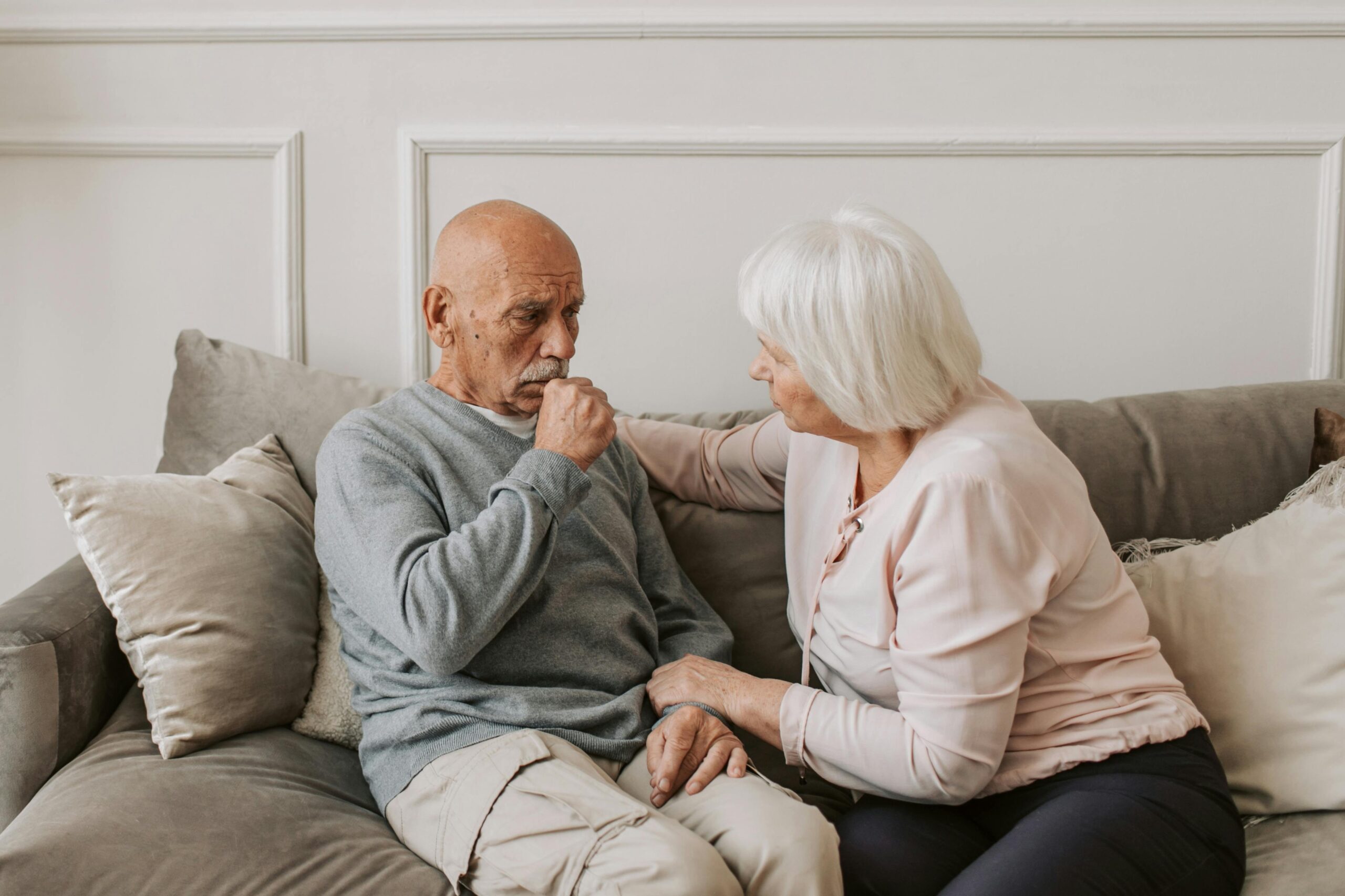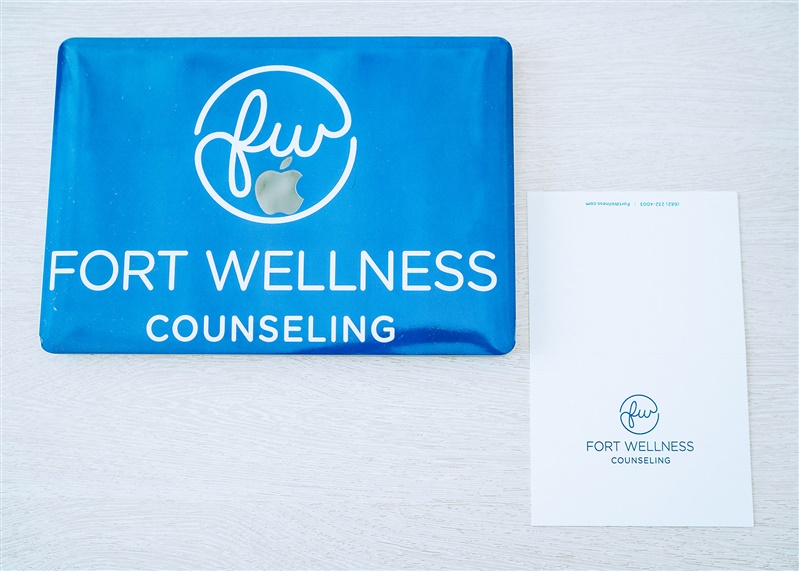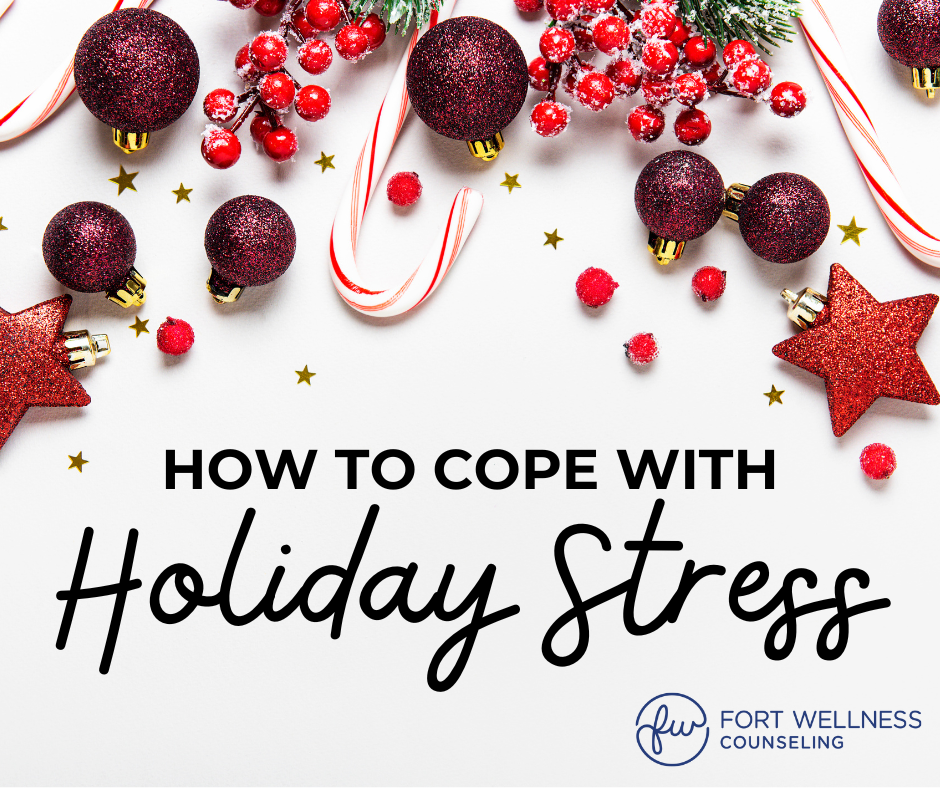
Family Vacations & Your Mental Peace: Strategies for Stress-Free Summer Travel
Family Vacations & Your Mental Peace: Strategies for Stress-Free Summer Travel By: Rane Wallace, MS, LPC, LCDC, SAP Of course, traveling with your family is

When we’re navigating social media, complex relationships, and performance pressures, it’s easy for humans to become overwhelmed. And if you struggle with anxiety or another mental health condition, this can be especially hard. When you feel yourself getting worked up, having some de-escalating strategies in your back pocket can help. That’s why today’s blog post covers the 10 best ways to calm yourself down.
Struggling to remain calm? Below are some coping strategies that might help:
Taking deep breaths is one of the best ways to calm yourself down. Scott Dehorty, LCSW-C, of Delphi Behavioral Health says that “breathing is the number one and most effective technique for reducing anger and anxiety quickly.”
When we’re angry, we tend to take quick, shallow breaths. However, this kind of breathing triggers our brains to employ our fight-or-flight response. And when we do this repeatedly, we create a positive feedback loop (which perpetuates the habit). Taking long deep breaths will disrupt that feedback loop, which helps us calm down.
There are many breathing techniques you could try. However, we’re biased toward three-part breathing. To practice, take one deep breath in, then exhale fully while paying attention to your body. Once you get comfortable with this, you can start slowing down your exhales.
Part of being anxious or angry is experiencing irrational thought patterns. While we’re in the throes of a panic attack, our thoughts might revert to “worst-case scenario” situations. And when you get caught in a tangle of “what ifs,” it can be hard to snap yourself out of it.
When you find yourself thinking irrational thoughts, ask yourself challenging questions to help reframe your perspective. Here are some examples:
If possible, try and remove yourself from the stressful situation. You can leave the room, go outside, look in another direction, or close your eyes. Humans don’t activate our best decision-making when we’re anxious or angry. (This is where our survival thinking kicks in). Therefore, switching up your physical experience can help you develop a different thought pattern.
As we mentioned, so much of our ‘angry’ or ‘anxious’ energy is spent on irrational thoughts. Refocusing our energy onto a centering object – such as a necklace you always wear or your shoelaces – can help calm your mind. When entering a potentially stressful situation (like a job interview or important meeting), designate one object to be the focus of your attention. Then, when things get stressful, remember to turn to that object.
Tense muscles are a common physical response to anger or anxiety. Therefore, progressive muscle relaxation techniques can help calm you down during such times. To practice, lie down on the floor with your arms by your sides. (Make sure your hands and feet aren’t crossed). Starting with your feet, slowly signal each of your muscles to release. If you’re unable to lie down, sit up tall and take a deep breath. Drop your shoulders and feel their weight release. Continue until you experience relief.
Receiving acupuncture or getting massages are two fantastic ways of managing anxiety. Therefore, if you find that you’re starting to become overwhelmed, you can acupressure yourself for instant relief. To practice, press your thumb against the crease where the inside of your wrist meets your hand. Doing so releases tension and relaxes your body.
It’s possible to release your emotional energy via exercise (and it doesn’t require a grueling HIIT workout to do so). Going for a walk, running, or practicing yoga all release mood-boosting endorphins that can instantly lift your spirits. Simply choose your favorite.
A lot of people rely on mantras to ground them during difficult situations. Not only do mantras provide something to focus on, but they offer a rational shift in focus. To help “reality test” the situation, practice repeating something like:
We know this might sound silly – but chewing gum can help you chase those anxious feelings. Because chewing gum stimulates blood flow in your brain, certain studies have linked it to reduced anxiety and improved mood. The study also found that gum chewers were more alert and better at multitasking than their non-chewing counterparts.
If your head is a mess of anxious and worried thoughts, putting them to paper can help. Journaling is an incredibly healthy way to process your emotions, so it can significantly reduce feelings of anxiety. If you’re unsure where to begin, check out these 5 Self-Care Journaling Prompts for Mental Health.
We hope that these ways to calm yourself down offer relief in moments of anger or anxiety. If you struggle with overwhelming emotions, we recommend having a few on hand that you can turn to in times of need. You can learn 15 more coping skills for anxiety and stress management.
While it’s normal to become anxious every now and again, experiencing chronic stress and/or overwhelm is a sign that you should speak to a Licensed Professional Counselor. If you’re located in the Dallas-Fort Worth area, look no further than Fort Wellness Counseling.
Our experience in anxiety, depression, and substance abuse therapy has named us one of Fort Worth’s Top 3 Therapists for the past two years. If you’d like to see if we’re a good fit for you, schedule an introductory appointment today.

Family Vacations & Your Mental Peace: Strategies for Stress-Free Summer Travel By: Rane Wallace, MS, LPC, LCDC, SAP Of course, traveling with your family is

Mental Health 101: Debunking Common Myths By: Rane Wallace, MS, LPC, LCDC, SAP Every May, Mental Health Awareness Month raises awareness and advocacy for people

Medical Trauma: Understanding and Healing from Difficult Healthcare Experiences By: Rane Wallace, MS, LPC, LCDC, SAP Over the years, I’ve come to understand that for

Social Media Depression: Beyond FOMO to Algorithm-Induced Mood Change By: Rane Wallace, MS, LPC, LCDC, SAP I’ve seen this happen so many times with patients,

How to Wind Down at Night: Simple Sleep Hygiene Tips By: Rane Wallace, MS, LPC, LCDC, SAP Sleep hygiene might sound like a fancy term,

Pregnancy and Postpartum Anxiety Treatment in Fort Worth By: Rane Wallace, MS, LPC, LCDC, SAP Have you or a loved one experienced anxiety during pregnancy

Breaking the ‘New Year, New Me’ Mindset: A Guide to Sustainable Change By: Rane Wallace, MS, LPC, LCDC, SAP In my years as a therapist,

How to Support a Partner with Chronic Illness: A Mental Health Perspective By: Rane Wallace, MS, LPC, LCDC, SAP Living with a chronic illness can

EMDR for Attachment Issues: Building Healthy Relationships By: Rane Wallace, MS, LPC, LCDC, SAP When you hear “EMDR therapy” (Eye Movement Desensitization and Reprocessing), you

How to Deal with a Narcissistic Partner By: Rane Wallace, MS, LPC, LCDC, SAP Do you ever feel like your partner thinks they’re better than

How to Recover from Burnout By: Rane Wallace, MS, LPC, LCDC, SAP Burnout is a common struggle in today’s fast-paced world. Life’s relentless demands can

The Benefits of Attending Couples Counseling By: Rane Wallace, MS, LPC, LCDC, SAP There’s a misconception about couples counseling – that it signals the end

Things to Know About Individual Counseling in Fort Worth, TX By: Rane Wallace, MS, LPC, LCDC, SAP May is Mental Health Awareness Month, a good

Everything You Need to Know About EMDR Therapy By: Rane Wallace, MS, LPC, LCDC, SAP Have you heard about EMDR therapy and want to learn

What is Nature Therapy? (And Why You Should Be Doing It!) By: Rane Wallace, MS, LPC, LCDC, SAP Let’s face it: there’s just something about

The Benefits of Virtual Therapy in Texas By: Rane Wallace, MS, LPC, LCDC, SAP Technology is changing everything, and healthcare is no different! Thanks to

How to Get Over a Breakup By: Rane Wallace, MS, LPC, LCDC, SAP Breaking up with a romantic partner is painful – no matter the reason

How to Set New Year’s Resolutions By: Rane Wallace, MS, LPC, LCDC, SAP How to Set New Year’s Resolutions Setting goals gives us a sense

How to Cope with Holiday Stress By: Rane Wallace, MS, LPC, LCDC, SAP Say No to Prevent Burnout There are an abundance of obligations that

Trauma Therapy in Fort Worth: Types, Benefits & More By: Rane Wallace, MS, LPC, LCDC, SAP Believe it or not, an estimated 60% of men

How to Communicate Better in Relationships By: Rane Wallace, MS, LPC, LCDC, SAP Whether with coworkers or your significant other, the ability to communicate effectively

How to Prevent Seasonal Affective Disorder (SAD) By: Rane Wallace, MS, LPC, LCDC, SAP If you’re struggling with winter blues, know you’re not alone. SAD

What is a Functioning Alcoholic? By: Rane Wallace, MS, LPC, LCDC, SAP When someone is deemed a ‘high-functioning alcoholic,’ they’re able to carry out daily

How to Help Yourself – And Others – with Suicidal Ideation By: Rane Wallace, MS, LPC, LCDC, SAP September is Suicide Awareness Month. And while

32 Questions to Strengthen Your Relationship By: Rane Wallace, MS, LPC, LCDC, SAP When was the last time you had a meaningful conversation with your

The Fawn Response: How Trauma Can Lead to People Pleasing By: Rane Wallace, MS, LPC, LCDC, SAP Do you often find yourself putting the needs

How to Overcome ‘Hangxiety’ (Post-Drinking Anxiety) By: Rane Wallace, MS, LPC, LCDC, SAP Thought the consequences of drinking heavily were merely physical? Unfortunately, you’ll have

What is Box Breathing? Plus Tips for Beginners By: Rane Wallace, MS, LPC, LCDC, SAP Ever heard of box breathing? This popular relaxation technique involves

Do Mindfulness Exercises for Anxiety Work? By: Rane Wallace, MS, LPC, LCDC, SAP Do mindfulness exercises for anxiety work? If you (or people in your

What is Trauma Bonding? 4 Warning Signs By: Rane Wallace, MS, LPC, LCDC, SAP If you’ve ever been in an abusive relationship and felt bonded

Why Do We Cry? 4 Reasons and Crying Benefits By: Rane Wallace, MS, LPC, LCDC, SAP There’s no getting around it – crying is part

What Is Habit Stacking? (And How to Do It) By: Rane Wallace, MS, LPC, LCDC, SAP Supporting our mental health is one of those goals

5 Tips for Living with Someone with OCD By: Rane Wallace, MS, LPC, LCDC, SAP While living with OCD (obsessive-compulsive disorder) can be demanding, living

What is Assertive Communication? By: Rane Wallace, MS, LPC, LCDC, SAP So, what is assertive communication? Well, in a nutshell, this communication style aims to

PTSD Counseling in Fort Worth: Proven Coping Strategies By: Rane Wallace, MS, LPC, LCDC, SAP For those who didn’t already know, post-traumatic stress disorder (PTSD)

Brainspotting vs. EMDR: What’s the Difference? By: Rane Wallace, MS, LPC, LCDC, SAP According to the National Council for Mental Wellbeing, 70% of American adults

Mindfulness Exercises to Strengthen Your Recovery By: Rane Wallace, MS, LPC, LCDC, SAP Are you recovering from alcohol and/or substance abuse? Self-improvement is a life-long

How to Find a Counselor in Fort Worth By: Rane Wallace, MS, LPC, LCDC, SAP Are you considering therapy? If so, finding a counselor in

How To Not Be Codependent In A Relationship By: Rane Wallace, MS, LPC, LCDC, SAP Wondering how to not be codependent in a relationship? Sometimes

What is Parental Anxiety? Coping Tips from a Therapist By: Rane Wallace, MS, LPC, LCDC, SAP Every parent wants to shield their child from danger

What is EMDR Therapy? By: Rane Wallace, MS, LPC, LCDC, SAP Ever heard of eye movement desensitization and reprocessing therapy? More commonly known as EMDR,

8 Proven Tips to Sleep Better at Night (and Improve Your Mental Health) By: Rane Wallace, MS, LPC, LCDC, SAP Struggling with restless nights and

How to Have a Healthy Relationship with Social Media By: Rane Wallace, MS, LPC, LCDC, SAP In today’s world, there’s no escaping the presence of

What Is The Goal of Psychotherapy? By: Rane Wallace, MS, LPC, LCDC, SAP Have you been considering psychotherapy? The start of a new year is

What is Brainspotting Therapy? By: Rane Wallace, MS, LPC, LCDC, SAP Brainspotting therapy is a kind of alternative therapy that is gaining immense popularity in